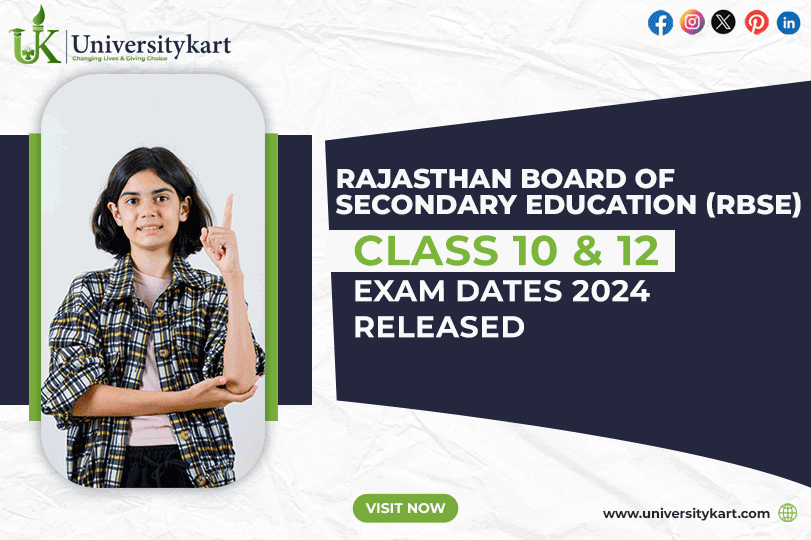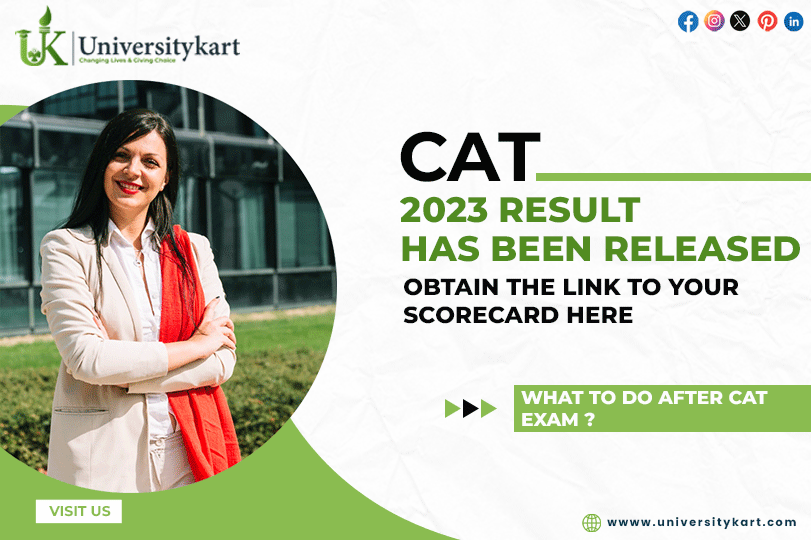
What is CAT Exam?
The Common Admission Test (CAT) is a computer-based entrance examination conducted in India for admission to various management programs, particularly Master of Business Administration (MBA) programs. CAT is considered one of the most prestigious and competitive MBA entrance exams in the country.
The CAT exam is conducted by one of the Indian Institutes of Management (IIMs) on a rotational basis. It assesses candidates' aptitude and skills in multiple areas to determine their eligibility for admission to MBA programs offered by the IIMs and other participating business schools in India.
The exam consists of multiple-choice questions (MCQs) and is typically divided into three sections:
1. Quantitative Ability (QA): This section evaluates candidates' mathematical and problem-solving skills. It includes questions on topics such as arithmetic, algebra, geometry, number systems, and data interpretation.
2. Verbal Ability and Reading Comprehension (VARC): This section assesses candidates' English language skills, including grammar, vocabulary, reading comprehension, and critical reasoning.
3. Data Interpretation and Logical Reasoning (DILR): This section tests candidates' ability to interpret and analyze data, as well as their logical reasoning and decision-making skills.
The CAT exam is known for its challenging nature and is designed to evaluate candidates' analytical thinking, time management, and problem-solving abilities. It is a crucial step in the admission process for top-tier MBA programs in India.
Candidates who score well in the CAT exam have a higher chance of securing admission to reputed management institutes. The CAT score is an essential component considered by business schools during the selection process, along with other factors such as academic performance, work experience, written ability tests, group discussions, and personal interviews.
Some key features and highlights of the CAT exam2023:
1. Computer-Based Test: The CAT exam is a computer-based test where candidates answer multiple-choice questions (MCQs) on a computer screen. The exam is conducted at designated test centres across India.
2. Sectional Format: The CAT exam consists of three sections: Quantitative Ability (QA), Verbal Ability and Reading Comprehension (VARC), and Data Interpretation and Logical Reasoning (DILR). Each section has a specific time limit, and candidates cannot switch between sections during the exam.
3. Difficult and Competitive: The CAT exam is known for its high level of difficulty and competitiveness. It tests candidates' aptitude, analytical skills, problem-solving abilities, and decision-making skills. The difficulty level of the questions varies, with some being relatively easier and others more challenging.
4. Marking Scheme: The CAT exam follows a "3 marks for a correct answer and a -1 mark for an incorrect answer" marking scheme. However, there is no negative marking for non-MCQs or questions that are not attempted.
5.Non-MCQs: In addition to multiple-choice questions (MCQs), the CAT exam also includes non-MCQs. Non-MCQs are questions where candidates need to type in the answer instead of selecting from options. These questions do not have negative markings for incorrect answers.
6. Online Calculator: A basic on-screen calculator is provided during the CAT exam for calculations. Candidates can use the calculator for calculations, but it is advisable to use it judiciously due to time constraints.
7. Duration: The duration of the CAT exam is typically around 2-3 hours. Each section has a specified time limit, and candidates must manage their time efficiently to answer all the questions within the given time.
8. Score Validity: The CAT score is generally valid for one year. Candidates can use their CAT score to apply for MBA programs in the year of the exam or in the immediately following year, depending on the specific admission cycle of the participating institutes.
9. Acceptance by Top B-Schools: CAT scores are accepted by the Indian Institutes of Management (IIMs) and other premier business schools across India. Besides the IIMs, numerous other institutes consider CAT scores as a crucial factor in the admission process for their MBA programs.
The CAT exam 2023 has followed a pattern similar to the one described below:
1. Total Sections: The CAT exam consists of three sections: Quantitative Ability (QA), Verbal Ability and Reading Comprehension (VARC), and Data Interpretation and Logical Reasoning (DILR).
2. Sectional Duration: Each section has a specified time limit. In recent years, the duration for each section has been around 60 minutes. Candidates are required to complete each section within the allotted time.
3.Non-MCQs: Along with multiple-choice questions (MCQs), the CAT exam also includes non-MCQs or Type-in-the-Answer (TITA) questions. In non-MCQs, candidates have to type in the answer using a virtual keyboard. Non-MCQs do not have negative markings for incorrect answers.
4. Marking Scheme: The CAT exam follows a "3 marks for a correct answer and a -1 mark for an incorrect answer" marking scheme for MCQs. However, the exact marking scheme may vary, and it's important to refer to the official CAT website for specific details.
The overall syllabus of the CAT exam and a breakdown of the syllabus for each section:
Overall Syllabus:
The CAT exam assesses candidates' abilities in three major sections: Quantitative Ability (QA), Data Interpretation and Logical Reasoning (DILR) and Verbal Ability and Reading Comprehension (VARC). The exam aims to evaluate candidates' quantitative aptitude, language skills, logical reasoning, and data interpretation abilities.
Section-wise Syllabus:
Quantitative Ability (QA):
Number Systems; Arithmetic (Percentage, Profit and Loss, Time and Work, Time, Speed and Distance, etc.), Algebra (Equations, Inequalities, Functions, Progressions, etc.), Geometry (Lines, Triangles, Circles, Quadrilaterals, etc.), Mensuration, Probability, Permutation and Combination, Set Theory, Trigonometry
Data Interpretation and Logical Reasoning (DILR):
Data Interpretation: Tables, Bar Graphs, Line Charts, Pie Charts, Caselets, etc.
Data Sufficiency: Analyzing data and determining if given information is sufficient to answer the questions.
Logical Reasoning: Seating Arrangements, Blood Relations, Syllogisms, Coding-Decoding, Direction Sense, Order and Ranking, etc.
Venn Diagrams, Binary Logic, Assumptions and Conclusions
Verbal Ability and Reading Comprehension (VARC):
Reading Comprehension: Passages from various subjects, requiring comprehension and answering questions based on the given information.
Vocabulary: Synonyms, Antonyms, Analogies, Idioms, Phrases, etc.
Grammar: Sentence Correction, Error Spotting, Sentence Completion, etc.
Verbal Reasoning: Para jumbles, Paragraph Summary, Critical Reasoning, etc.
The CAT exam requires a systematic and well-planned approach. Here are some tips to help you with your CAT exam 2023 preparation:
1. Understand the Exam Pattern: Familiarize yourself with the CAT exam pattern, including the number of sections, duration, marking scheme, and types of questions. This will help you strategize your preparation accordingly.
2. Know the Syllabus: Thoroughly go through the CAT exam syllabus and make a list of topics for each section. Create a study plan that covers all the topics, giving more time to areas where you feel less confident.
3. Study Material: Refer to standard reference books, study guides, and online resources that cover the CAT syllabus comprehensively. Make sure to use materials specifically designed for CAT preparation to ensure you are covering the right topics and getting quality practice questions.
4. Practice Regularly: Practice is key to improving your speed and accuracy. Solve a wide range of questions from different difficulty levels to enhance your problem-solving skills. Solve previous years' question papers and take mock tests to simulate the exam environment and assess your performance.
5. Time Management: CAT is a time-bound exam, so develop efficient time management skills. Practice solving questions within the time limits to improve your speed and accuracy. Learn to prioritize and allocate time to different sections based on your strengths and weaknesses.
6. Analyze and Learn from Mistakes: After attempting practice tests and mock exams, thoroughly analyze your performance. Identify your weak areas and work on improving them. Understand the concepts behind the questions you got wrong and learn from your mistakes.
7. Take Mock Tests: Mock tests are an essential part of CAT preparation. They help you understand the exam format, identify your strengths and weaknesses, and improve your time management skills. Analyze your performance in mock tests to track your progress and make necessary adjustments to your study plan.
8. Stay Updated and Seek Guidance: Stay updated with the latest news and updates about CAT through the official CAT website or other reliable sources. Join online forums or coaching institutes where you can interact with fellow aspirants and seek guidance from experts.
9. Maintain a Healthy Lifestyle: Along with your academic preparation, take care of your physical and mental well-being. Get enough sleep, exercise regularly, eat a balanced diet, and manage stress effectively. A healthy lifestyle will enhance your focus and concentration during your preparation.
The eligibility criteria for the CAT exam 2023 are as follows:
1. Educational Qualification: Candidates must hold a Bachelor's degree from a recognized university or educational institution. The degree can be in any discipline.
2. Minimum Percentage: There is no specific minimum percentage requirement for the CAT exam. Candidates from all academic backgrounds are eligible to apply.
3. Final Year Students: Candidates who are in the final year of their Bachelor's degree program or are awaiting their results are also eligible to apply. However, if selected, their admission will be provisional, subject to meeting the eligibility criteria of the respective participating institutes.
4. Age Limit: There is no age limit for appearing in the CAT exam.
5. Nationality: Indian nationals, as well as foreign nationals, are eligible to apply for the CAT exam. Foreign nationals must fulfil the specific eligibility criteria set by the respective participating institutes.
The registration and application process for the CAT exam, follow these steps:
1. Visit the Official Website: Go to the official CAT website (iimcat.ac.in) to access the registration portal.
2. Create a User Account: Click on the "New Candidate Registration" or similar option to create a user account. Create a password and submit the registration form.
3. Receive User ID and Password: After successful registration, you will receive a User ID and Password on the registered email address and mobile number. Keep this information safe as it will be required for future logins.
4. log in to the Application Portal: Use your User ID and Password to log in to the CAT application portal.
5. Fill in Personal Details: Complete the application form by entering your personal details, such as your name, gender, nationality, category, and communication address.
6. Academic Qualifications: Provide information about your educational background, including details of your Bachelor's degree or equivalent qualification.
7. Work Experience (if applicable): If you have work experience, enter the relevant details, including the organization's name, job title, duration of employment, etc. This section is optional, and you can skip it if you don't have any work experience.
8. Select Preferred Programs: Choose the management programs and the respective participating institutes where you wish to apply using your CAT scores. Select your preferences carefully as changes may not be allowed later.
9. Upload Documents: Upload scanned copies of your recent passport-sized photograph and signature as per the specified format and size requirements. Make sure the images are clear and properly cropped.
10. Review and Submit: Review all the entered information thoroughly to ensure its accuracy. Make any necessary corrections before submitting the application form.
11. Pay the Application Fee: Pay the required application fee using the available online payment options, such as credit/debit card, net banking, or other specified methods. The application fee amount may vary for different categories (General, SC/ST, PwD, etc.).
12. Print Application Form: After successful payment, download and print a copy of the completed application form for future reference. It may contain important details such as the application number and payment details.
CAT Important Dates
Following are the important dates for CAT exam 2023
| Time Line | Important Dates |
| CAT Notification Date 2023 | July 30, 2023 |
| Registration Start Date | August 4, 2023 |
| Last Date to Apply | September 15, 2023 |
| Registration & Application Fee | Rs.2400/- |
| Admit card Download Start date | October 25, 2023 |
| Last Date for Admit Card Download | November 26, 2023 |
| CAT Exam date 2023 | November 26, 2023 |
| CAT 2023 Result date | January 4, 2024 |
Download the CAT 2023 Admit Card
You can follow these general steps:
1. Visit the Official CAT Website: Go to the official website for the CAT exam, which is typically iimcat.ac.in. Ensure that you visit the official website to avoid any fraudulent or unauthorized sources.
2. Log in to Your Account: Look for the "Download Admit Card" or similar link on the website's homepage. Click on it and log in to your account using your User ID and Password. This information is provided during the registration process.
3. Access Your Admit Card: Once logged in, you should be able to see and access your CAT Admit Card. It will be available for download in PDF format.
4. Verify Details: Carefully review the details mentioned on the admit card, such as your name, photograph, CAT registration number, exam date, time, and exam center. Make sure that all the information is accurate.
5. Download and Save: After verifying the details, click on the download button to save the admit card to your device. It is recommended to save a copy on your computer or smartphone and also take a printout of the admit card.
6. Check Additional Instructions: Along with the admit card, there may be additional instructions or guidelines provided. Read them thoroughly and make note of any specific requirements for the exam day.
CAT 2023 Exam Result & IIMs’ Admission Process
CAT Exam Result Admission Process:
Announcement: The CAT exam results are expected to be declared in the 2nd week of January 2024, or potentially earlier.
CAT Scorecard: Candidates can access their CAT scorecard by logging into their registered accounts on the official CAT website. The scorecard will display the overall CAT percentile score, sectional scores, and percentiles.
Shortlisting for Written Ability Test (WAT), Group Discussion (GD), and Personal Interview (PI):
IIM Shortlisting Criteria: Each IIM has its own specific shortlisting criteria, which consider CAT scores, academic performance, work experience, and other parameters.
Shortlist Announcement: Candidates who meet the respective IIM's shortlisting criteria will be notified through email or the official website. They will be invited for the subsequent selection rounds, which may include WAT, GD, and PI.
Written Ability Test (WAT), Group Discussion (GD), and Personal Interview (PI):
Conduct of WAT/GD/PI: Shortlisted candidates will be required to participate in the WAT, GD, and PI rounds conducted by the respective IIMs. These rounds assess the candidates' written and communication skills, general awareness, and overall personality.
Final Selection Criteria: The final selection of candidates is based on their performance in the CAT exam, WAT/GD/PI rounds, academic profile, work experience, and other factors, as per the specific IIM's admission criteria.
Admission Offer:
Waitlist Movement and subsequent rounds:
Waitlist Movement: In case seats remain vacant after the initial offers, IIMs may conduct subsequent rounds of admission offers from their waitlist. Candidates on the waitlist have the chance to secure admission if they move up in the list based on withdrawals or non-acceptance of offers.
Related News
View AllRelated Articles
View AllTrending Articles
View All-

GMAT 2023: Registration, Dates, Eligibility, Scholarship, Syllabus, and Exam Pattern
Jul, 19, 2023 Read More -

NMAT 2023: Save the Dates Registration, Exam Pattern, Syllabus and Selection
Jul, 18, 2023 Read More -

Cracking CAT 2023: Essential Guide to Exam Dates, Notification, Registration, and Syllabus
Jul, 17, 2023 Read More























 back
back